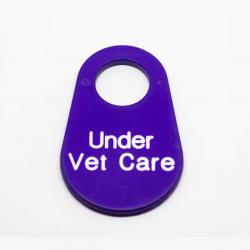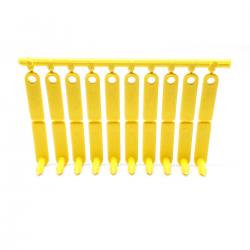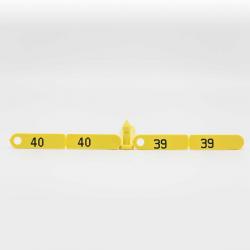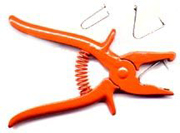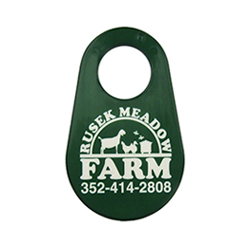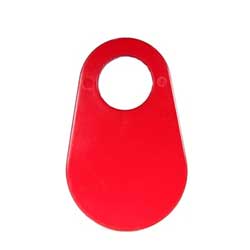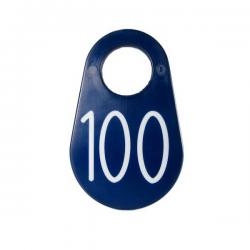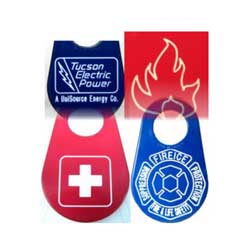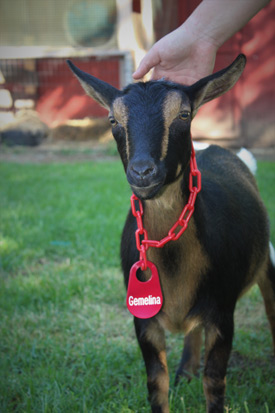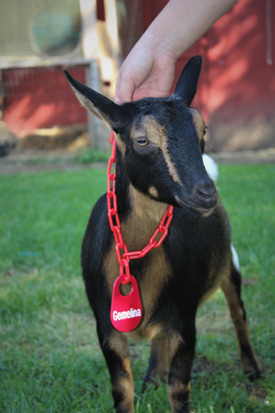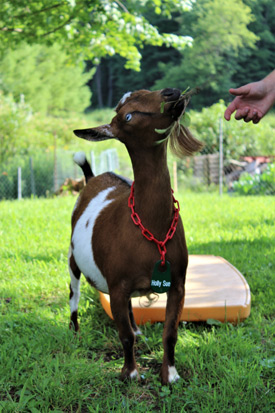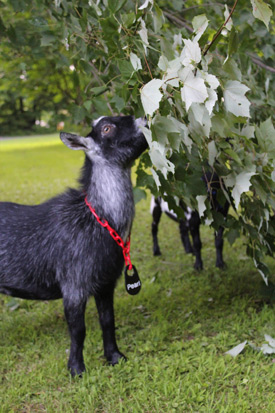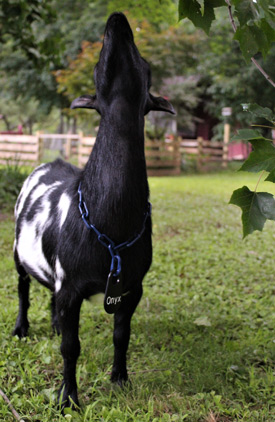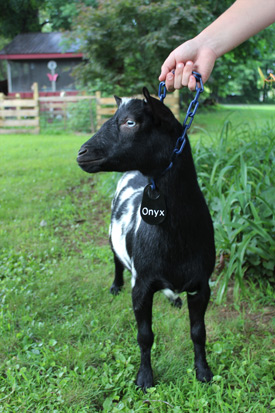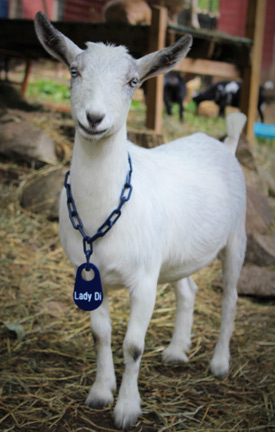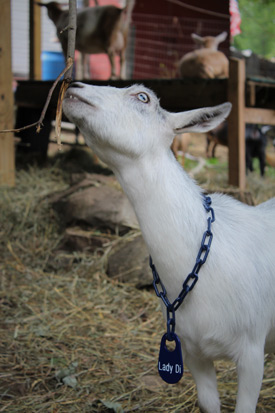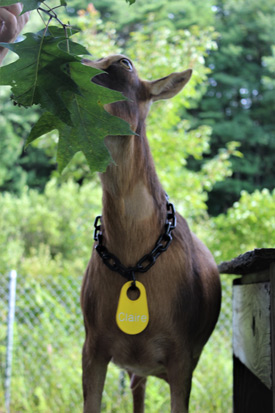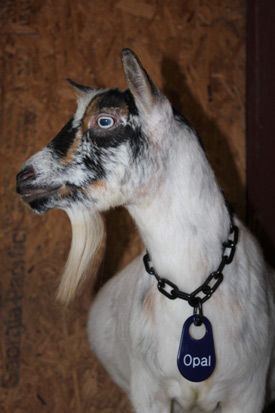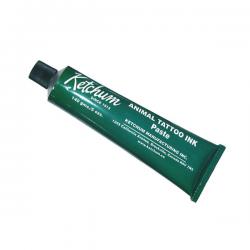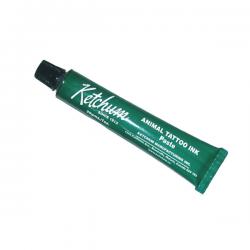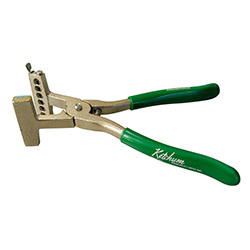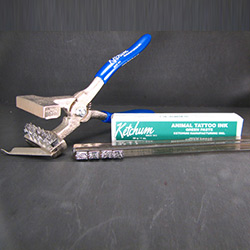Say Hello to the New “Kids” on the Block
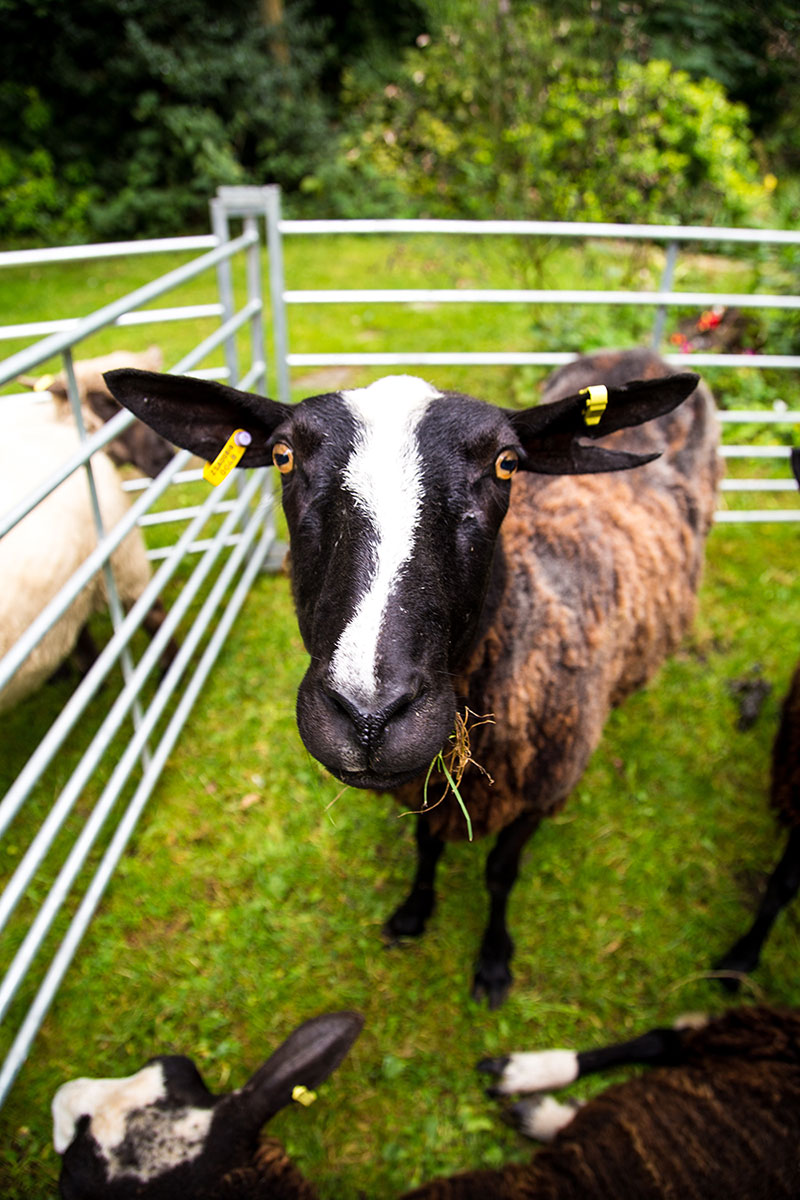 You see them everywhere now. Black goats. White goats. Red and brown and brindle-coated goats. Shaggy goats and ones newly shorn. Lone wild mountain goats leaping nimbly from ledge to ledge on impossibly steep escarpments; and domesticated goats happily hanging out with pigs, chickens, and the rest of their fellow farm animals. You see silly baby goats cavorting in pajamas, pet pygmy goats playing joyfully with small children, and grown commercial breeds of goats staring adorably into the camera while sporting the latest fashions in ear and neck identification tags.
You see them everywhere now. Black goats. White goats. Red and brown and brindle-coated goats. Shaggy goats and ones newly shorn. Lone wild mountain goats leaping nimbly from ledge to ledge on impossibly steep escarpments; and domesticated goats happily hanging out with pigs, chickens, and the rest of their fellow farm animals. You see silly baby goats cavorting in pajamas, pet pygmy goats playing joyfully with small children, and grown commercial breeds of goats staring adorably into the camera while sporting the latest fashions in ear and neck identification tags.
Anyone who has spent any time at all on social media will have noticed that cats and dogs—those perennial favorite animals for photo- and video-sharing—have a new competitor: goats! Look anywhere on Facebook, Instagram, Pinterest, and YouTube, and you will quickly discover that our collective bandwidth is fairly bursting with pictures and movies of goats of every size, type, and breed, engaged in every kind of goat-appropriate activity imaginable; or just placidly posing and looking…well, unbearably cute.
What is going on here? Has the world gone goat-crazy?
What Is Old Is New Again
What is with this sudden spate of tragosphilia (“fondness for goats”) that has seemingly taken the world by storm, one would think that people are only now rediscovering the charms and benefits of goat herding. The reality, however, is that the Internet is only now catching up to a “trend” that began many millennia ago: you see, the domesticated goat (Capra aegagrus hircus) has been with us for a very long time.
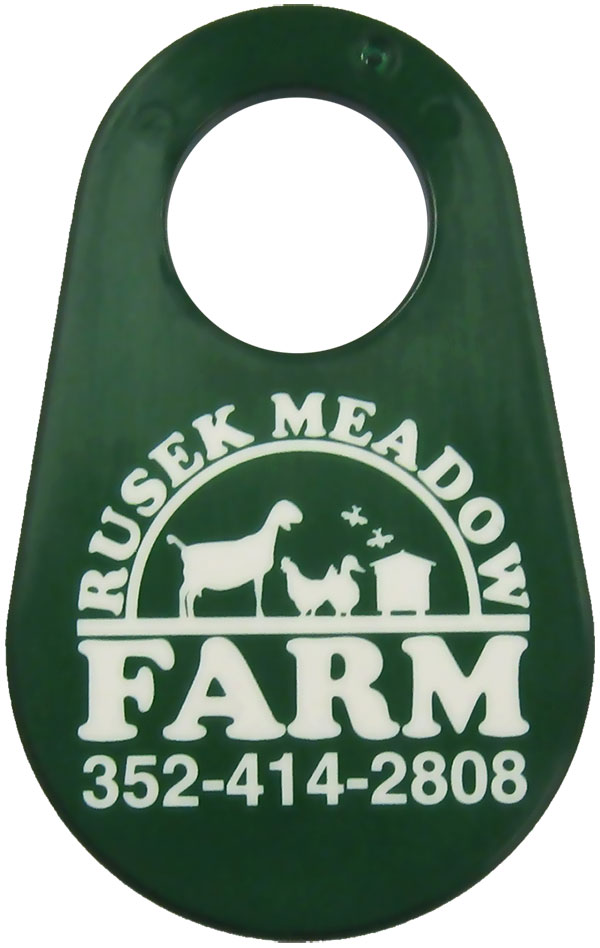 Indeed, goats are among the first animals to have been domesticated by humans. Proving that they have always been popular in the visual arts, the carved and drawn images of goats festoon thrones, pottery, and other relics from ancient Greece and the Middle East. Going even further back, archaeological and genetic evidence indicates that our Stone Age ancestors kept goats for milk, meat, clothing, and other practical uses, such as dung for fuel and bones for tools.
Indeed, goats are among the first animals to have been domesticated by humans. Proving that they have always been popular in the visual arts, the carved and drawn images of goats festoon thrones, pottery, and other relics from ancient Greece and the Middle East. Going even further back, archaeological and genetic evidence indicates that our Stone Age ancestors kept goats for milk, meat, clothing, and other practical uses, such as dung for fuel and bones for tools.
Some 10,000 years later, this advantageous arrangement continues unabated, with the UN Food and Agriculture Organization (UNFAO) estimating that there are now about a billion goats kept domestically worldwide.
Different Goats for Different Folks
That being said, there is no question that in the United States the keeping of goats—for a wide variety of reasons—is enjoying a new resurgence in popularity. While cattle for meat and dairy production maintain their dominant position in U.S. agriculture, goats overall are cheaper and easier to manage, making them an ideal addition to small farms and increasingly a boon to individual urban/suburban homesteaders. And, unlike cows, goats can even be kept as pets or serve as therapy animals!
Yet not all goats are created equal. There are some 300 recognized goat breeds, each with distinct (and sometimes overlapping) characteristics as defined by their primary uses. These uses can be divided roughly into:
- dairy
- fiber
- skin
- meat
- companionship
For example, some dairy breeds, such as Nigerian Dwarf goats, Nubians, and Alpines, excel at producing milk that can be made into delicious cheeses, yogurts, and ice cream—not to mention gentle, eco-friendly skin lotions and soap bars.
Others, like Cashmeres and Angoras, are best known for the quality of their wool for apparel and carpets.
And still others (well, all of them, when you get right down to it, since goats are notorious “eating machines”) can be put to work clearing land of unwanted vegetation. This is especially true in Western states and the Pacific Northwest, where herds of goats are used to eradicate poison oak, knapweed, leafy spurge, and other toxic or invasive species of plants. This is not “work” as far as the goats are concerned, of course; for them, it’s just food!
So You Think You Want Some Goats?
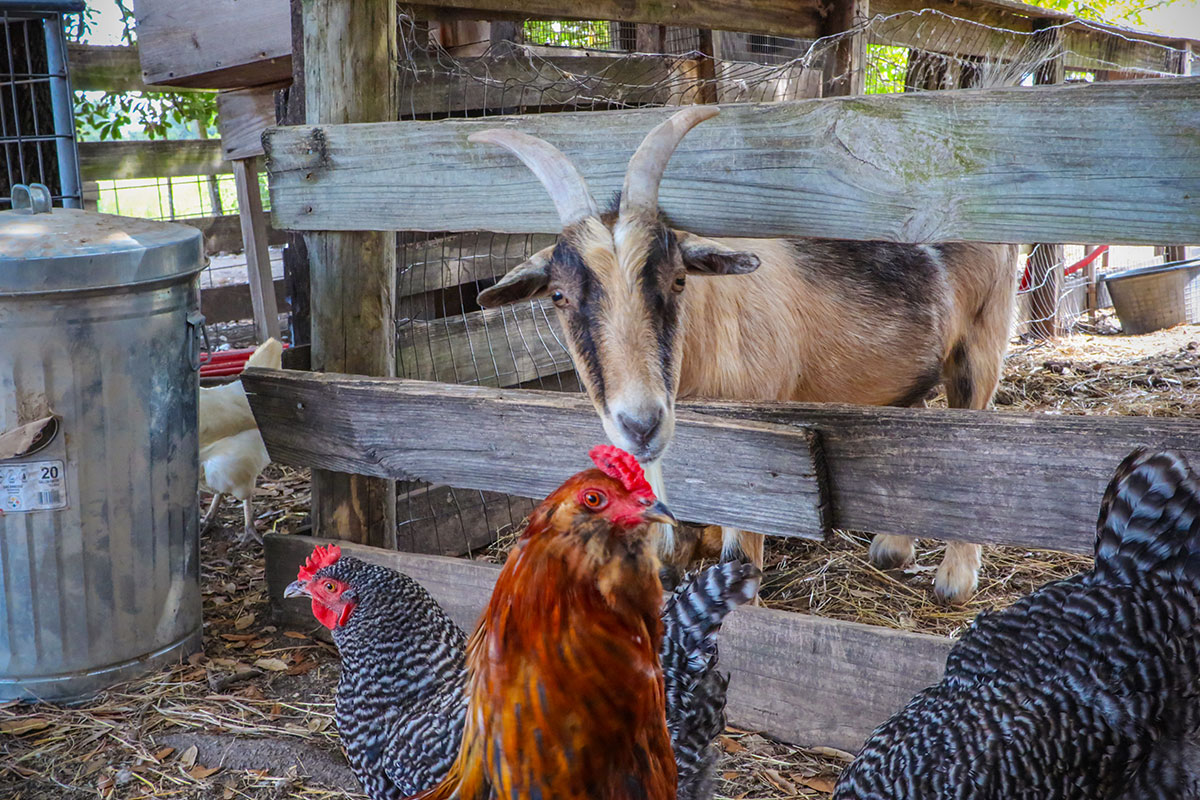 First and foremost, figure out what you want to do with them. Decide whether you want to keep goats for business, hobby, or just pleasure—and then learn everything you can about the respective traits of the various breeds in order to pick the ones most suitable for your purposes.
First and foremost, figure out what you want to do with them. Decide whether you want to keep goats for business, hobby, or just pleasure—and then learn everything you can about the respective traits of the various breeds in order to pick the ones most suitable for your purposes.
Another important thing to know is that purebred goats are harder to come by and more expensive to purchase than mixed breeds. You’ll do fine with the latter, in all likelihood, if you are just starting out and have a modest budget.
However, if you wish to enter your goats in shows at FFA and H4 fairs and other official events, or plan on breeding kids for sale as a serious business, it is essential that you deal exclusively with registered, purebred goats.
One of the foremost registries is the nonprofit American Dairy Goat Association (ADGA), the mission of which is to collect, record, and preserve the pedigrees of purebred dairy goats by maintaining herd books and issuing certificates of registration and recordation of dairy goats. There are also separate registries for certain specific breeds of goats, such as the American Boer Goat Association (ABGA), the National Pygmy Goat Association, and others.
Once your herd is established, it is vital that you both manage it well and keep meticulous records. For instance (and this is basic), a vet can and should vaccinate your animals against tetanus and clostridium perfringens. And many breeders choose to “dis-bud” their baby goats (remove their horns) for the safety of the humans who tend to them as well as that of the other animals on the farm.
Durable livestock ear tags and neck tags can be used for identification locally. (Besides standard blank and numbered neck tags, Ketchum can provide goat neck tags custom-imprinted with your farm’s logo.) But most registries insist on tattooing for newborn kids. In addition, the complete, accurate lineage of buck and doe must be recorded and submitted to the appropriate registry, along with color description, birth date and breeding date, registered tattoo belonging to the herd into which the goat was born, and other required information.
If goat-keeping for breeding purposes is your main business goal, this article on “How to Raise Goat Breeding Stock” should be of interest to you.
Goat Tattooing & Identification Products
Finally…Keeping Goats as Pets
We have canine friends and feline friends, whom we customarily embrace as integral members of the family. So why not hircine friends?
Interestingly enough, domesticated goats released into the wild quickly revert to a feral state. Yet they can also make wonderful pets for people. The reason for this is that goats are by nature herd animals, and so they quickly form a strong bond with the humans who tend to them. Goats are also ultra-smart animals—just like dogs and dolphins—and so this inherent intelligence translates into a range of personalities that humans just find irresistibly appealing.
There is not enough room on this page to cover all the ins and outs of keeping goats as pets. However, this YouTube video should get you started on learning what you need to know:

